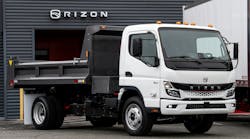The California Air Resources Board (CARB) has granted certification approval for the Ford F-250 and F-350 pickups converted to run on propane by Livonia, MI-based Roush Performance. Roush said that with CARB approval in hand, it is now allowed to sell Roush-propane-powered Ford F-250 & F-350 trucks in all 50 states.
The approval is valid for 2010 Ford F-250 and F-350 models equipped with the 5.4L V8 engine. Roush said it is currently working towards receiving this same CARB certification for the upcoming 2011 propane-powered Ford E-150, E-250 and E-350 cargo and passenger vans due to launch in the second quarter of 2010.
“We have made a significant investment in our liquid-propane injection technology, and we look forward to helping fleet operators across the country reduce their carbon footprint and operating costs with our propane-powered vehicles,” said Todd Mouw, director of sales & marketing for Roush Propane Vehicles.
“ We have more than two hundred 2010 Ford F-250s and F-350s in our inventory, so we have plenty of trucks available to meet customer demand.
Roush said future plans include converting Ford E-Series vans to run on propane, as well as Ford E-450 cutaways with 6.8L V10 engine. Complete details on the ROUSH propane offerings can be found online at www.ROUSHperformance.com/propane or by calling 1-800-59-ROUSH.
As an alternative fuel, according to Roush, propane offers a variety of advantages: “It is available ‘right here, right now’ with a national infrastructure already in place. Propane burns cleaner, with up to 20% less nitrogen oxide, up to 60% less carbon monoxide and fewer particulate emissions. It is already the third most widely used fuel worldwide, following gasoline and diesel. Propane is 90% domestically produced, and as an alternate fuel, the purchase of propane-powered vehicles are eligible for a variety of federal, state, and municipal tax credits or rebates.”


